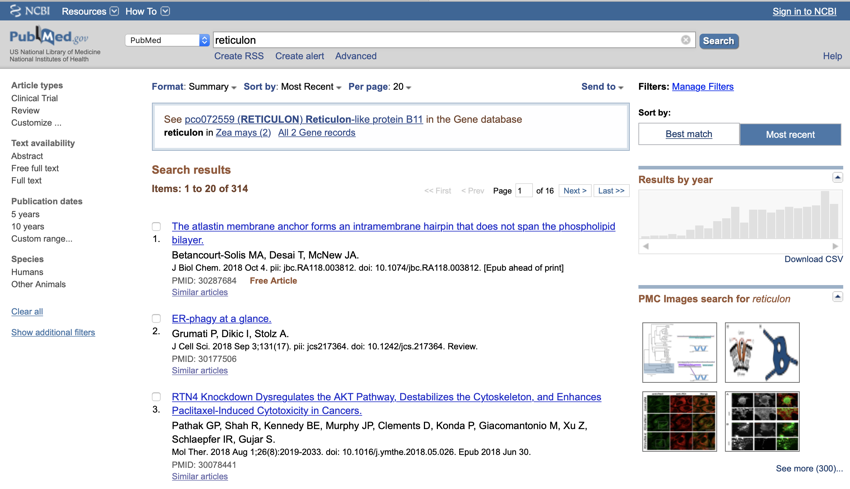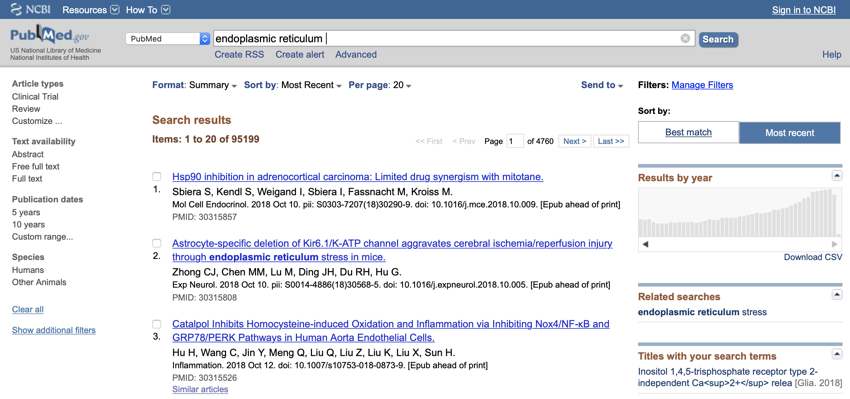Finding Scientific Papers in PubMed
PubMed
is an incredibly useful, and powerful, search system and database that you should be using throughout your degree to find additional information and additional reading.
PubMed
contains scientific papers (primary literature) and review articles that can be easily searched. The system also provides links through to other areas of the
Entrez
system, including protein and DNA sequences, genetic disease etc.
In this section, you will be learning how to use
PubMed
for keyword searches, and how to combine searches to get more meaningful results.
By the end of this section you will be able to:
- search PubMed
 for key terms
for key terms - combine searches to give more specific results
Let's pretend you have been set an essay: 'Describe the role of the reticulon family of proteins in maintaining the shape of the endoplasmic reticulum' (you have not been set this essay).
You need to find the latest research and thinking to write the essay. The first thing you need to do is identify the keywords or phrases in the essay title, and in this case, they are:
So, we have now established some keywords to use.
- Go to PubMed
 - http://www.ncbi.nlm.nih.gov/pubmed/
- http://www.ncbi.nlm.nih.gov/pubmed/ .
. - Type the keyword in the search box. In this case we will use 'reticulon' (don't include the quote marks) as the first keyword.
- Click on 'Search'.

Screen shot of 'reticulon' entered as a keyword into PubMed - search run on Tuesday October 10, 2017 at 2:22:29 pm

Example of the type of results that may be returned - search run on Sunday October 14, 2018 at 10:25:57 am - note: your results may look different to this as the databases are constantly updated
From the search, you will have over 300 papers returned. This is a lot, and if you look at the list, you will see a number that are not relevant. Therefore, you need to refine the search.
- In the PubMed
 search box type the phrase 'endoplasmic reticulum' (again, don't include the quote marks) and run a new search.
search box type the phrase 'endoplasmic reticulum' (again, don't include the quote marks) and run a new search.

Search results returned for the phrase 'endoplasmic reticulum' - note there are over 95,000 papers reported - search run on Sunday October 14, 2018 at 11:02:55 am - note: your results will look different to this
- We have run two PubMed
 searches and found numerous papers
searches and found numerous papers - Spending our time looking through all the papers is pointless....


